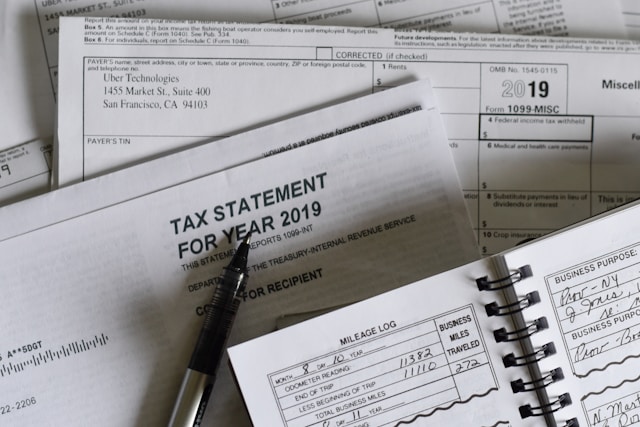Receiving a letter from the IRS that says your tax return is under review can be stressful. While an audit may sound intimidating, it’s often the result of common mistakes or red flags—many of which are avoidable. Understanding what the IRS looks for and how to prepare can help you minimize risk and respond effectively if you are selected for an audit.
What Is an IRS Audit?
An IRS audit is a formal review of your tax return and supporting documents to verify that the information you reported is accurate. The IRS conducts audits to ensure taxpayers are complying with the law and paying the correct amount of tax.
Although the odds of being audited are low for most people—less than 1% for those earning under $200,000 annually—the risk increases with higher income, self-employment, or more complex financial situations.
Common Reasons the IRS Selects Tax Returns for Audit
- Unreported Income
One of the most common audit triggers is failing to report all sources of income. The IRS receives copies of most income documents you receive—such as W-2s, 1099s, and investment income statements. If your tax return doesn’t match the information reported to the IRS, your return may be flagged for review.
What you can do:
Keep track of all your income sources, including freelance work, rental income, and investments. Review your records carefully before filing your tax return to ensure nothing is missing.
- Big Changes in Income
A sudden and significant increase or decrease in your reported income compared to prior years may catch the IRS’s attention, especially for self-employed individuals and small business owners.
What you can do:
If your income fluctuates for a valid reason—such as losing a major client or taking time off for personal reasons—make a note of it in your return. Many tax preparation programs allow you to attach supporting explanations or documentation.
- Unusual or High Deductions
The IRS uses data models to compare your deductions with others in the same income range. If your deductions are unusually high, the IRS may want to confirm they’re legitimate. Deductions that commonly raise questions include:
- Large charitable donations
- Business losses
- Home office expenses
- High travel or meal expenses
- Rental property losses
What you can do:
Be sure to keep all receipts, invoices, and records that support your deductions. If you’re unsure whether a deduction is allowed, speak with a tax professional.
- Reporting Business Losses Year After Year
New businesses often operate at a loss in their early years, but consistently reporting losses may lead the IRS to question whether your business is a real business or a hobby. Tax law limits how hobby losses can be deducted.
What you can do:
Treat your business like a business—keep detailed financial records, maintain a separate business bank account, and operate with a goal of making a profit.
- Foreign Accounts or Cryptocurrency
The IRS requires disclosure of offshore accounts and virtual currency transactions. Failing to properly report these assets—or even just having them—can increase the likelihood of an audit.
What you can do:
Make sure you understand your reporting responsibilities if you have foreign accounts, investments, or use cryptocurrency. Consult a tax professional if you’re unsure which forms you need to file.
What Happens During an Audit?
The IRS conducts audits in three main ways:
- Correspondence Audit – Conducted by mail; typically requests clarification or supporting documents for specific items on your return.
- Office Audit – You’re asked to meet with an IRS agent at a local IRS office.
- Field Audit – The IRS visits your home or business for a more in-depth review of your records.
You will always receive an official notice by mail. The IRS does not initiate audits by phone or email—beware of scams that claim otherwise.
How to Respond to an Audit
If you are selected for an audit:
- Read the IRS notice carefully – It will tell you what year and items are being reviewed.
- Gather your records – Collect all documents related to the audit. This may include receipts, bank statements, invoices, or logs.
- Respond on time – It’s important to meet the IRS’s deadline, or they may complete the audit without your input.
- Request more time if needed – You can ask for a 30-day extension if you need additional time to gather documents.
- Consider professional help – A tax attorney or accountant can guide you through the process and represent you in meetings with the IRS.
Know Your Rights
As a taxpayer, you have the right to:
- Be treated with courtesy and respect
- Privacy and confidentiality regarding your tax information
- Know why the IRS is requesting information
- Challenge the IRS’s position and be heard
- Appeal the IRS’s decisions
If you disagree with the audit findings, you can request a meeting with an IRS manager, seek mediation, or file an appeal.
Conclusion
An IRS audit doesn’t always mean you’ve done something wrong—but it does mean you need to be prepared. Keeping accurate records, reporting all income, and taking legitimate deductions with proper documentation are your best defenses.
If you’ve received an audit notice or want to better protect yourself during tax season, contact an experienced tax attorney to help guide you and protect your financial interests.





